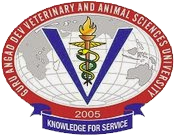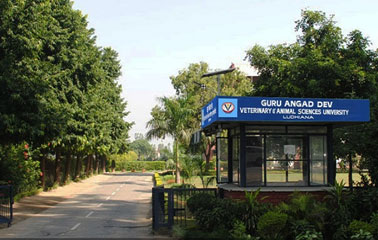

Summer is a challenging season to poultry farming. For the hot summer months there are many precautions which need to be taken right from the onset of rising temperature. The information was shared by Dr. A.P.S.Sethi, Senior Nutritionist (Poultry) of Guru Angad Dev Veterinary & Animal Sciences University. He said that Poultry birds do not have sweat glands and have thick cover of feathers. During summer months the birds consume less feed and more water due to which their growth rate, egg production, egg shell quality and hatchability are all adversely affected and mortality is high. Disease incidence in the flocks also increases because of wet litter, immune-suppression, vaccination failures and contamination of drinking water.
Dr. Sethi said that there should be a grass cover on the grounds surrounding the poultry house which will reduce the reflection of sunlight into the house. Vegetation should be kept trimmed to avoid blocking of air movement and to help in reducing rodent problems. Shady trees should be located where they do not restrict air movement. Keep a reliable, clean, cool source of water available to help the birds cope with high temperatures. As the birds excrete electrolytes during periods of heat stress, electrolytes can be added to the drinking water to replace those that are lost and to stimulate water consumption. The number of waterers and frequency of watering should be increased in summer months. In case of nipple drinkers, frequent check of nipples should be monitored.
While purchasing new stock the time of purchase should be adjusted in such a way that the productive stage should not come during acute summer months. Before the onset of summer season the unproductive and weak birds should be removed and stocking density should be reduced. During summer season nutrient intake by the birds should be increased by increasing nutrient density. Part of energy should be supplied through fats and oils. Feeding should be done during early morning and late evening improves micro environment of shed. Feed withdrawal from 9 am to 4.30 pm is very effective in reducing heat stress mortality. Feed intake and digestion produce nearly 7% additional heat in the body and is maximum after 4 to 5 hours after feed consumption. This should not coincide with hottest part of the day (2 to 3 pm) Birds fasted in the day compensate intake in the night time. Crude Protein level in feed should not be increased and preferably vegetable protein sources should be used.
Preventive treatment through drinking water should be given. In moderate hot weather, Ascorbic acid, Acetylsalicylic acid, Sodium bi carbonate and Potassium chloride can be given in drinking water to maintain electrolyte balance. Egg collection frequency at the farm should be increased and cold room should be available for egg storage in hot summer months
